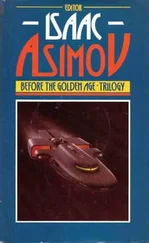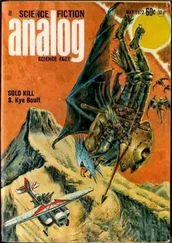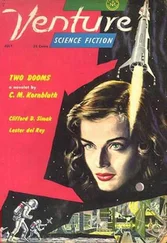Clifford Simak - Ring Around the Sun
Здесь есть возможность читать онлайн «Clifford Simak - Ring Around the Sun» весь текст электронной книги совершенно бесплатно (целиком полную версию без сокращений). В некоторых случаях можно слушать аудио, скачать через торрент в формате fb2 и присутствует краткое содержание. Жанр: Фантастика и фэнтези, на английском языке. Описание произведения, (предисловие) а так же отзывы посетителей доступны на портале библиотеки ЛибКат.
- Название:Ring Around the Sun
- Автор:
- Жанр:
- Год:неизвестен
- ISBN:нет данных
- Рейтинг книги:5 / 5. Голосов: 1
-
Избранное:Добавить в избранное
- Отзывы:
-
Ваша оценка:
- 100
- 1
- 2
- 3
- 4
- 5
Ring Around the Sun: краткое содержание, описание и аннотация
Предлагаем к чтению аннотацию, описание, краткое содержание или предисловие (зависит от того, что написал сам автор книги «Ring Around the Sun»). Если вы не нашли необходимую информацию о книге — напишите в комментариях, мы постараемся отыскать её.
Ring Around the Sun — читать онлайн бесплатно полную книгу (весь текст) целиком
Ниже представлен текст книги, разбитый по страницам. Система сохранения места последней прочитанной страницы, позволяет с удобством читать онлайн бесплатно книгу «Ring Around the Sun», без необходимости каждый раз заново искать на чём Вы остановились. Поставьте закладку, и сможете в любой момент перейти на страницу, на которой закончили чтение.
Интервал:
Закладка:
Begin at the beginning, he told himself. Start with first facts, try to see the logic of it, to figure out the course of mutancy.
There always had been mutants. If there had not been, Man would still be a little skittering creature hiding in the jungle, taking to the trees, terrified and skulking.
There had been the mutation of the opposable thumb. There had been mutations within the little brain that made for creature cunning. Some mutation, unrecorded, had captured fire and tamed it. Another mutation had evolved the wheel. Still another had invented the bow and arrow. And so it went, on down the ages. Mutation on mutation, building the ladder that mankind climbed.
Except that the creature who had captured and tamed the flame did not know he was a mutant. And neither had the tribesman who had thought up the wheel, nor the first bowman.
Down through the ages there had been unsuspected and unsuspecting mutants — men who were successful beyond the success of others, great business figures or great statesmen, great writers, great artists, men who stood so far above the herd of their fellow men that they had seemed giants in comparison.
Perhaps not all of them were mutants, though most of them must have been. But their mutancy would have been a crippled thing in comparison with what it could have been, for they were forced to limit themselves, forced to conform to the social and economic pattern set by a non-mutant society. That they had been able to conform, that they had been able to fit themselves to a smaller measure than their normal stature, that they had been able to get along with men who were less than they and still stand out as men of towering ability was in itself a measure of their mutancy.
Although their success had been large in the terms of normal men, their mutancy had been a failure in that it never reached its full realization and this was because these men had never known what they were. They had been just a little smarter or a little handier or somewhat quicker than the common run of mankind.
But suppose that a man should realize that he was a mutant? Suppose that he knew from a piece of indisputable evidence — what would happen then?
Suppose, for example, a man should find that he could reach out to the stars and that he could catch the thoughts and plans of the thinking creatures who lived on planets circling those far suns — that would be full and sufficient proof that he was a mutant. And if he could obtain from his seeking in the stars some specific information of certain economic value — say, the principle of a frictionless machine — then without question he would know that he had a mutant gift. Once knowing, he would not be able to fit so snugly, nor so smugly, into his contemporary niche as those men who had been mutants but had never known they were. Knowing, he would have the itch of greatness, would know the necessity of following his own path and not the beaten path.
He might be slightly terrified by the things he learned winnowing the stars and he might be terribly lonesome and he might see the necessity of humans other than him alone working on the information that he was dredging from the depths of space.
So he would seek for other mutants and he would do it cleverly and it might take him a long time before he found one of them and he would have to approach the other cautiously and win his confidence and finally tell him what he had in mind.
Then there'd be two mutants, banded together, in the course of years they would see, and find other mutants. Not all of them, of course, would be able to send their minds out to the stars, but they would be able to do other things. Some of them would understand electronics, almost as if by instinct, more completely than any normal man, even with years of intensive training, and another one of them might sense the strange alignment of time and space that allowed for other worlds than one, following on each other's heels in a magnificent, eternal ring.
Some would be women and to the mutants-found would be added mutants-born and in twenty years or so there would be a mutant organization of, say, several hundred persons, pooling their talents.
From the information they gathered from the stars, plus the mutant abilities of certain others of them, they would invent and market certain gadgets that would bring in the necessary money for them to continue with their work. How many of the now common, workaday, almost prosaic gadgets used in the world today, Vickers wondered, were the products of this mutant race?
But the time would come when the mutant organization and the work they did would become too prominent to pass unnoticed and they would seek a place to hide — a safe place where they could continue the work that they were doing. And what safer place could there be than one of the other earths?
Vickers lay on the corn shuck mattress and stared into the darkness and wondered at the glibness of his imagination, with the nagging feeling that it was not imagination — that it was something that he knew. But how could he know it?
Conditioning, perhaps, of his android mind. Or an actual knowledge gained in some period of his life that had been blotted out, as the time he had gone into fairyland at the age of eight had been blotted out — a knowledge that now was coming back again, as the remembrance of the visit to fairyland had come back again.
Or ancestral memory, perhaps, actual specific memory passed to child from parent as instinct was passed — but the catch was that, as an android, he didn't have a parent.
He was parentless and raceless and a mockery of a man, created for a purpose he did not even know.
What purpose could the mutants have for him? What talent did he possess that made him useful to them? What would they use him for?
That was the thing that hurt — that he should be _used_ and not know, that Ann should have some purpose she did not even guess.
The work of the mutants was greater than the mere gadgetry they would like it to appear, something greater than Forever cars and everlasting razor blades and synthetic carbohydrates. Their work was the rescue and the re-establishment of the race — the starting over again of a badly muddled race. It was the development of a world or worlds where war would not be merely outlawed, but impossible, where fear would never raise its head, where progress would have a different value than it had in mankind's world today.
And into a program of this sort, where did Jay Vickers fit?
In this house in which he lay there was a new beginning and it was a crude beginning, but a solid one. In another two or three generations the people of this family would be ready for the gadgets and the progress that was due them, and when they were ready the progress would be waiting for them.
The mutants would take from the human race the deadly playthings and keep them in trust until the child of Man was old enough to use them without hurting himself or injuring his neighbor. They would take from the three-year-old the twelve-year-old toy he was using dangerously and when he was twelve years old would give it back again, probably with refinements.
And the culture of the future, under mutant guidance, would be not merely a mechanistic culture, but a social and an economic and an artistic and spiritual culture as well as mechanical. The mutants would take lopsided Man and mold him into balance and the years that were lost in the remolding would pay interest in humanity in the years to come.
But that was speculation, that was day-dreaming, that was getting nothing done. The thing that counted now was what he, Jay Vickers, android, meant to do about it.
Before he could do anything, he'd have to know more of what was happening, would have to get some solid fact. He needed information and he couldn't get it here, lying on a corn shuck mattress in the loft above the kitchen of a neo-pioneer home.
Читать дальшеИнтервал:
Закладка:
Похожие книги на «Ring Around the Sun»
Представляем Вашему вниманию похожие книги на «Ring Around the Sun» списком для выбора. Мы отобрали схожую по названию и смыслу литературу в надежде предоставить читателям больше вариантов отыскать новые, интересные, ещё непрочитанные произведения.
Обсуждение, отзывы о книге «Ring Around the Sun» и просто собственные мнения читателей. Оставьте ваши комментарии, напишите, что Вы думаете о произведении, его смысле или главных героях. Укажите что конкретно понравилось, а что нет, и почему Вы так считаете.









